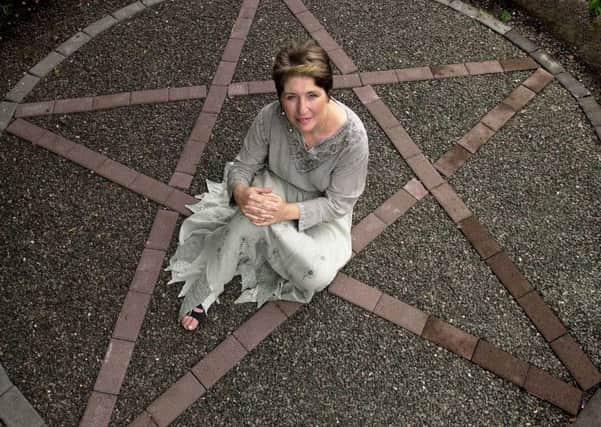Obituary: Janet Paisley, award-winning novelist, poet and playwright


Asked to name her favourite place, Janet Paisley’s lyrical response was a simple illustration of her innate love of language. Describing her regular pilgrimage to the small Angus fishing village of Auchmithie she said: “The beach is large pebbles. On certain tides the backwash turns them over and a chuckle runs along the shore, as if the earth was laughing.”
She had not pored over the lines or teased them into a poem, she was answering quickfire questions in an interview for the publisher Penguin. The words came easily and swiftly from the woman who had had ambitions of becoming a novelist since the age of five.
Advertisement
Hide AdAdvertisement
Hide AdShe got rather sidetracked – seven sons and a career as a teacher, single motherhood and a slew of poetry collections, short stories, an award-winning play and a BAFTA nomination ensued before her first novel, White Rose Rebel, was published in 2007.
“I didn’t want to reach the end of my life without having done what I meant to do with it,” she said. The novel was greeted with critical acclaim – a “heather-igniting historical adventure” said one review – but was just one strand in a life of diverse and prolific writing, a love that stemmed from being raised in a family in which everyone read and where every home was packed with books.
Born in Ilford, Essex, to Scottish parents, she grew up in Avonbridge, near Falkirk, and attended Falkirk High School, going on to the town’s Callendar Park College of Education. A spell in primary teaching followed but when she found herself a single parent, having left an abusive marriage, she faced the challenge of earning a living while caring for her young family.
She had endured the pain of losing one son in babyhood but with six boys to look after she had to be both resilient and inventive. Her solution was to start writing commercially and her first short story was published in 1979.
Half a dozen collections of poetry followed, interspersed with fiction and non-fiction, theatre, radio and television drama and film, generating a host of awards.
A night owl, she would wait until her boys were all in bed before settling down to write for the evening, the sound of her typewriter clacking away in the background as they fell asleep.
Later she would write on her computer, at a desk facing her large living-room window, looking out south onto the garden and the village street, the distant hill and trees, always armed with tea and cigarettes.
She wrote in English and Scots, championing the Scots language through her work in the community, in schools and as a member of the working party for the Scottish National Theatre and the SAC Scots Language Synergy and was on the Cross Parliamentary Group for the Scots Language. Her favourite Scots word, she couldn’t decide which, was either fankle or scunnered.
Advertisement
Hide AdAdvertisement
Hide AdBy 1989 she had begun winning awards. The BBC Radio Scotland Prose prize was followed by others including the Scots Language MacDiarmid Trophy and in 1996, the year her book Alien Crop was shortlisted for the Saltire Society Scottish Book of the Year, she also won the UK’s Peggy Ramsay Award for new writing for her play Refuge, commissioned in response to the closure of safe houses in Falkirk, a subject close to her heart.
Sooans Nicht, which she wrote with Graham McKenzie, was Critics Play of the Year and Not For Glory was among World Book Day’s Top Ten Scottish Book and on the nation’s Favourite Books of all Time list.
She wrote more than a dozen plays for theatre and radio, seven radio history drama series, television drama and the BAFTA and Royal Television Society-nominated short film Long Haul. She also held three Creative Writing Fellowships, received two Scottish Arts Council Writer’s Bursaries and a Playwright’s Bursary, edited New Writing Scotland, co-ordinated the first Scottish PEN Women Writers Committee and taught courses in creative writing for Glasgow University’s Department of Adult & Continuing Education.
Her work has been translated into several languages including German, Russian, Slovak, Spanish and Italian and she spoke at Russian academic symposiums, initiated a Scottish literature collection in Russia’s Voronezh university, took part in Barcelona’s theatrical Cartographies of Desire and in reading tours of Paris, Moscow, Slovakia, Lithuania and Ukraine.
A naturally shy, self-deprecating woman, when she had to perform her own work she would prepare for writing events by practising her poetry in front of the kitchen mirror – not always an easy feat with six boisterous boys in the house.
Having finally achieved her debut novel, she produced her second historical novel, Warrior Daughter, in 2009.
She had been planning to write a third when she had a serious stroke in July 2010, just as The Lasses O, a theatre play based on an earlier radio drama about the life of Robert Burns, was going into production. It went on to be an Edinburgh Festival Fringe sell-out show.
From then on her output slowed down but her final poetry collection, Sang fur the Wandert, poems in Scots and English, was published in 2015 – an impressive accomplishment post-stroke.
Advertisement
Hide AdAdvertisement
Hide AdOnce asked how she would like to be remembered, she replied: “Remembering is too late. Some of my work might survive. That’ll do,” adding “Women’s writing isn’t commemorated, though, if mine ever looks like heading for annual celebratory orgies by moonlight in woodland groves, tobacco and tea should be provided.”
Predeceased by her son Christopher, she is survived by sons Michael, Jonathan, Mark, Laurence, David and Matthew and four grandchildren.
ALISON SHAW